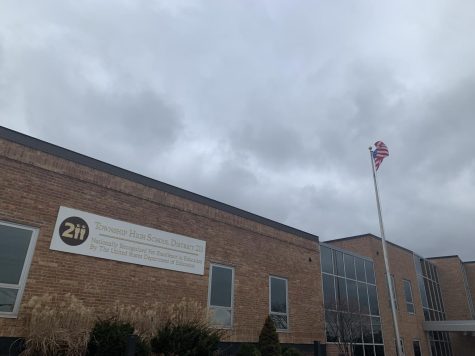January 6: The long term effects of Trumpism
March 16, 2022
A little over a year ago, protesters turned insurrectionists breached the Capitol in an act of politically symbolic violence only previously enacted by the British during the War of 1812. Driven by false claims of voter fraud perpetrated from the then current president Donald Trump, right wing lawmakers, media and extremist conspiracy theory peddlers, a crowd of two thousand stormed the capitol building. Five people died directly because the insurrection, with four more lives lost due to suicide in the following months. To date, seven hundred sixty-nine arrests have been made in connection to the Capitol riot.
The seeds of insurrection, however, were planted long before the 2020 presidential election. From the 2015 Republican presidential candidate debates through an unlikely election win and tumultuous presidential term, Donald Trump garnered a cult of personality with his distinct brand of outrageous, outlandish and sometimes plainly fallacious comments, usually posted at any and all hours of the day on his now-suspended Twitter account. While the actual achievements of his presidency are contentious, Trump succeeded in one crucial way no other president has been able to. Trump has effectively expanded the Trump brand into an entirely new branch of politics colloquially known as “Trumpism” with a loyal voter base. Armed with the now infamous red hat and blue flag, the followers of Trump take his word as the absolute truth.
The insurrection embodied the overtaking of the Republican party by new-age right wing extremists fronted by Trumpism as the crowds that were assembled on the Capitol grounds were not there to be Republicans, but rather Trump supporters ready to fight tooth and nail for him. This shift left old-school economy-focused conservative lawmakers scrambling to either concede or fight within their own party and risk reelection. No longer did Mitch McConnel, Mike Pence, Mitt Romney and various other career Republicans represent the wills of the Republican party, but half-naked QAnon shamans and supplement-pushing screaming internet personalities did. In fact, many insurrectionists were perfectly willing to “punish” these Republicans on Jan. 6 as they were seen as traitors to the Trump cause. Political newcomers such as Majorie Taylor Greene, Madison Cawthorn and Josh Hawley who all would have otherwise been political outsiders were able to fast track their political path in Washington straight into the House and Senate due to this shift in Republican party politics. These politicians were only able to gain power by commandeering the Trump supporter base by fully supporting the insurrection after the fact.
The effects of Jan. 6 and Trumpism are not contained in the parameters of politics. As the COVID-19 pandemic rages into its third year, anti-vax and anti-mask sentiments are at an all-time high. Conspiracy theories about government trackers, bioweapons, and genetic engineering in vaccines previously confined in the most fringe and niche corners of the internet have now migrated onto mainstream platforms such as Facebook and Twitter. Distrust in the government and authority seen in the opposition to the results of the 2020 presidential election and resistance to mask mandates and the COVID-19 vaccine runs rampant largely in part due to the seeds of doubt planted during the Trump era by the former president himself. This distrust invited extremism and conspiracy theory as people looked towards alternate avenues of information to trust instead.
Trumpism has long outgrown Trump himself. Even as Trump left office a year ago, America is not Trump-less. As the effects of Jan. 6th and Trumpism still permeate throughout America today, we as a nation must work together to combat extremism and misinformation by being more critical of the media we consume.












